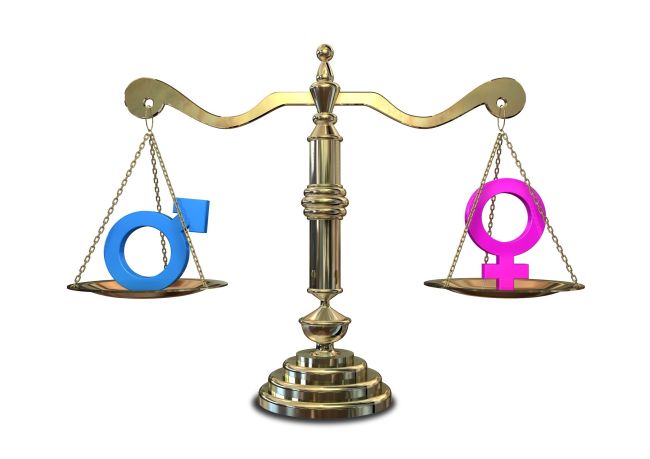Stereotypical gender roles at home and school remain a key barrier to gender equality, a government survey showed Thursday.
The survey, compiled by the Ministry of Gender Equality and Family on 1,000 adults and 500 students, is part of a government project for the upcoming gender equality week that runs from July 1-7.
According to the survey, 49.6 percent of the female adult participants said South Korean families are exposed to gender inequality at home, while only 25.1 percent of the male adult participants agreed.
Regarding home activities, 40.2 percent of the adults polled picked cooking as the primary activity of a married woman, followed by taking care of children and dishwashing. On the other hand, 34.6 percent of the adults picked watching television as the primary activity of a married man, followed by sitting or lying down on a couch and using computers and cellphones. Student participants' response on gender activities at home matched the adults'.
In wedding arrangements and marital life, 69.4 percent of the adult participants said their gender roles are unfair, while 39.8 percent of student participants felt the same way.

The largest inequality in arranging weddings was the long-stalled South Korean tradition of "The man buys the house, the woman buys the furniture and home appliances," triggered by the young South Korean generation's struggle to secure stable housing amid a slow economy.
By gender, 35 percent of male adults picked "man's role as the family's breadwinner" as the biggest source of inequality in marital life, followed by women's role to raise children. The number one inequality among female adult participants was their expected role taking care of the house and raising the children.
About one-fourth of the student participants said gender inequality affects their relationships with teachers. Other prevalent prejudice at school included female students' underperformance in sports and stronger punishments against male students than female ones for the same transgressions.
"The survey shows that in order to have 'equal homes,' people must want to change the existing biases of their gender roles," a ministry official said.(Yonhap)








![[Graphic News] More Koreans say they plan long-distance trips this year](http://res.heraldm.com/phpwas/restmb_idxmake.php?idx=644&simg=/content/image/2024/04/17/20240417050828_0.gif&u=)
![[KH Explains] Hyundai's full hybrid edge to pay off amid slow transition to pure EVs](http://res.heraldm.com/phpwas/restmb_idxmake.php?idx=644&simg=/content/image/2024/04/18/20240418050645_0.jpg&u=20240419100350)





![[From the Scene] Monks, Buddhists hail return of remains of Buddhas](http://res.heraldm.com/phpwas/restmb_idxmake.php?idx=652&simg=/content/image/2024/04/19/20240419050617_0.jpg&u=20240419175937)

![[KH Explains] Hyundai's full hybrid edge to pay off amid slow transition to pure EVs](http://res.heraldm.com/phpwas/restmb_idxmake.php?idx=652&simg=/content/image/2024/04/18/20240418050645_0.jpg&u=20240419100350)

![[Today’s K-pop] Illit drops debut single remix](http://res.heraldm.com/phpwas/restmb_idxmake.php?idx=642&simg=/content/image/2024/04/19/20240419050612_0.jpg&u=)